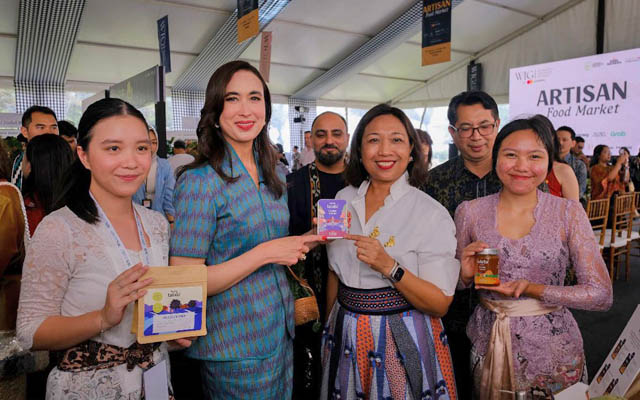The Indonesia Ministry of Tourism (MoT), in partnership with the Indonesia Gastronomy Network (IGN), has introduced Wonderful Indonesia Gourmet (WIG), a flagship programme to develop the country’s gastronomy tourism.
Indonesia’s minister of tourism, Widiyanti Putri Wardhana, said the initiative is part of the Elevating Tourism Class programme and reflects the ministry’s commitment to enhancing tourism quality, with gastronomy playing a key role in Indonesia’s future tourism growth.

WIG kicked off with the Indonesia Gourmet Guide, created with Mastercard Priceless, featuring 120 curated restaurants in Jakarta and Bali. Activities continued in Bali with a WIG Talk on gastronomy and the F&B industry, followed by an Artisan Food Market open to the public.
Widiyanti added that the ministry was also hosting a Restaurant Week initiative to increase activity in the gastronomy sector through partnerships with selected restaurants.
Indonesian cuisine is gaining international recognition, ranking seventh globally and first in South-east Asia in TasteAtlas’ publications. Six Indonesian cities were included among the 100 Best Food Cities. Agoda data from June to July 2025 placed Indonesia among the top five most-searched destinations for food and beverage activities.
“With foreign tourist arrivals reaching 8.5 million up to July 2025, a 10 per cent growth compared to the same period in 2024, this achievement is good news and still holds much greater potential if we drive it through the power of Indonesian gastronomy,” Widiyanti added.
IGN chair Vita Datau commented: “The Indonesia Gastronomy Network hopes this flagship programme will encourage the commitment of regional leaders to promote local wisdom and develop quality, sustainable gastronomy destinations ready to attract global gastronomic tourists.”
Kevindra Soemantri, head of the WIG committee, noted the programme could map Indonesia’s restaurant landscape onto the global stage. Bali, chosen as a pilot destination alongside Jakarta, combines culinary heritage with community, culture and sustainability through farm-to-table initiatives, organic farming, and community-based culinary tourism.
In 2024, Bali’s GDP from food services reached 27.6 trillion rupiah (US$16.5 million), with F&B manufacturing contributing 9.7 trillion rupiah, together representing 12.5 per cent of the island’s total GDP. Nearly four million international visitors went to Bali up to July 2025, accounting for 46.5 per cent of arrivals.
Wayan Sumarajaya, head of the Bali Tourism Office, said: “This synergy is also expected to help local cuisine, especially products from micro, small, and medium enterprises, to level up and become increasingly known, loved, and recognised globally.”


















